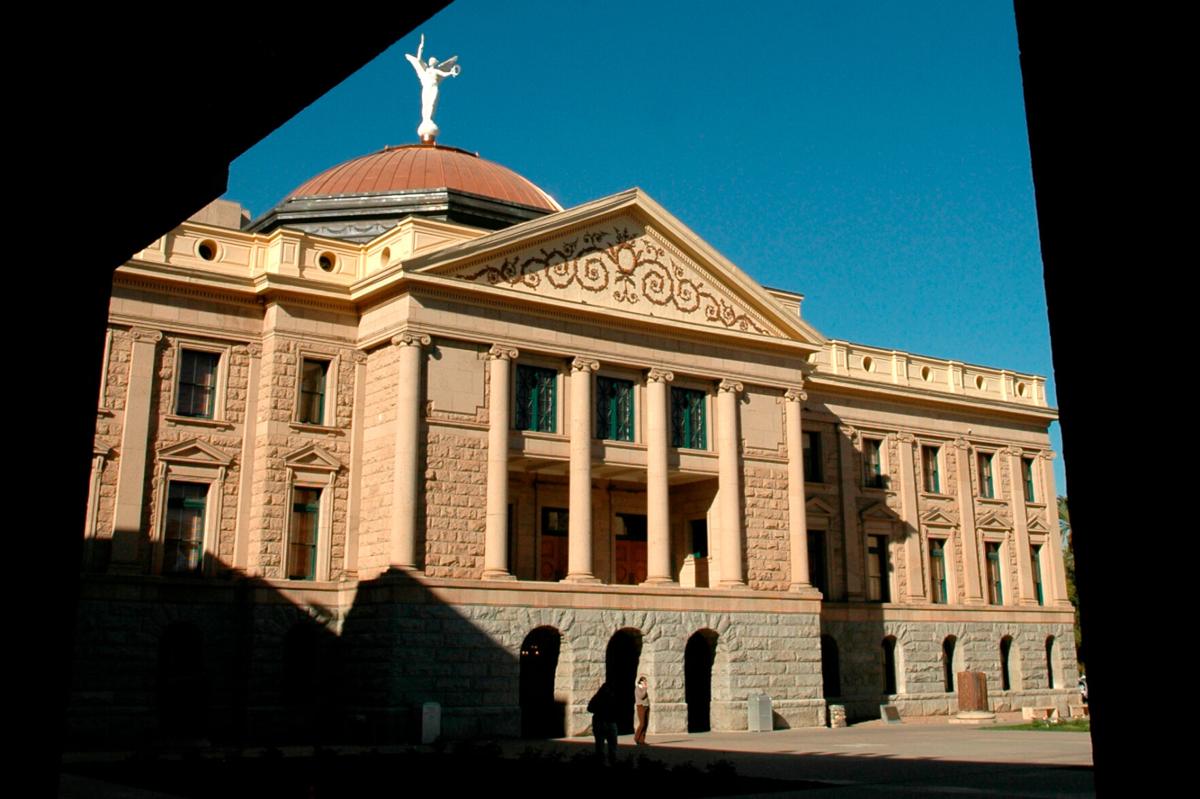You can take a lot of lessons from the scandal over a Saudi company pumping Arizona groundwater to grow alfalfa for export back to the Middle East.
So far, Arizona’s Legislature is missing the biggest one, though. They’re passing a bill that takes on a side issue while ignoring one that deals with the main issue.
The main bill responding to Saudi company Fondomonte’s pumping of groundwater in La Paz County has been Rep. Leo Biasiucci’s HB 2376. It would ban ownership or leasing of state-owned land by the governments of seven countries, or by companies from those countries.
The list of countries so far, adapted from the U.S. list of state sponsors of terrorism: China, Cuba, Iran, North Korea, Russia, Syria and Venezuela. Yes, the list does not include Saudi Arabia, the country that prompted the bill. It’s a funny fact, but it may change with an amendment.
The main problem the Fondomonte fiasco illustrates is that our groundwater laws remain too lax. It shows that anyone with enough money can come into Arizona and deplete its aquifers without any regulations or consequences.
This is the problem Arizona has been ignoring for decades, since the 1980 Arizona Groundwater Management Act established active groundwater management areas around the state’s bigger metro areas but left unregulated most of rural Arizona.
Biasucci, the House majority leader and a Republican from Lake Havasu City, actually has a bill starting to deal with this problem, but instead legislators are focused on the side-issue, foreign ownership or leasing of state lands.
“The bad bills sail through on party line votes,” said Rep. Stephanie Stahl-Hamilton, a Tucson Democrat who sees some value in the proposal. “The good bills don’t get heard.”
At a Feb. 16 meeting of the House Land, Agriculture and Rural Affairs Committee, Biasiucci said, “This bill is making sure that these countries in question should never own the state lands of Arizona.”
Committee members raised all the right questions: Wouldn’t the list of banned countries constantly be changing? Maybe all foreign purchases or leases should be banned? Can’t companies hire their ownership through a maze of LLCs?
“Was there any discussion about out of state American companies?” Rep. Lydia Hernandez asked. “They are able to come in and do the exact same thing.”
In fact, that has been the case in Cochise County, where Minnesota-based Riverview LLP, has opened large dairy operations and water levels have dropped.
But Biasucci’s HB 2376 is focused on foreign ownership.
The Fondomonte operation, he noted, “is in my district, and we want to make sure the water is not being pumped and used for things that don’t benefit us at all.”
Rep. Mariana Sandoval, a Democrat from Goodyear, responded, “I don’t know that the underlying issues, pumping groundwater, are in your bill.”
Biasucci responded, “If we stop them from getting the land, then they can’t pump the water, and that’s the goal.”
But of course, the bill is limited to state-owned lands. They can buy the land elsewhere and pump to their hearts’ content, as Riverview has.
It’s not that Biasucci’s foreign-ownership idea has no value, but that it is limited. The real issue is that anyone can come here and, as long as they are outside the active management areas, in most of rural Arizona, drain as much groundwater as they want.
There is actually a legislator with a decent idea for doing something about that touchy issue — Biasiucci. He has proposed establishing a new type of entity, a “local groundwater stewardship area.”
These could be established in a basin either by a proportion of the local population petitioning for it, or by the county supervisors. The Arizona Department of Water Resources would approve and potentially oversee local plans to achieve groundwater goals.
It’s a new version of an idea that former Rep. Regina Cobb, from the same area of the state, previously proposed. She called them rural management areas.
Haley Paul, the policy director of Audubon Southwest, told me discussions are ongoing and that this idea, now enshrined as HB 2731, still has potential. It would give local residents more control over local water.
“Creating new water policy is really hard,” she told me. “People are still hungry to do something, and they’re trying to figure out what are the ways we can move this ball forward.”
The obstacle, as always, is Rep. Gail Griffin, chair of the House Natural Resources, Energy and Water Committee. Griffin has for years blocked any regulation of groundwater pumping from occurring, even standing in the way of measuring pumping.
She’s not giving this bill a hearing in her committee either. So supporters are holding discussion outside of committee, trying to find a way.
At the Legislature, good ideas dealing with tricky issues like groundwater often have a hard time. But so-so ideas — they have a good chance.
Get your morning recap of today's local news and read the full stories here: tucne.ws/morning




